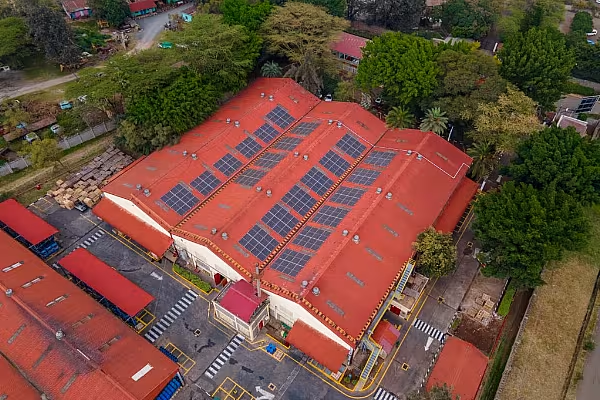Consumer goods giant Henkel has switched to 100% renewable electricity at its manufacturing site in Nairobi, Kenya.
Henkel described this achievement as a 'significant step forward' in the company's sustainability efforts in the region, with Kenya leading the transition to clean energy.
Henkel Kenya is among the eight manufacturing sites of the Adhesive Technologies business unit in the Middle East and Africa, that have successfully transitioned to renewable electricity sources, the company noted.
The company achieved this transition with the help of on-site solar installations and sourcing energy from external renewable sources, such as hydroelectric and wind energy providers.
Nancy Mwathi, plant manager for Henkel's Nairobi Adhesives Factory, stated, “This is a tremendous milestone for our team and a key part of Henkel's broader vision. Seeing this project, which began in 2021, come to fruition in 2024 has been both exciting and transformative.
“By aligning our goals with Henkel’s 2030+ Sustainability Ambition Framework, we are not only contributing to global ambitions but also making a tangible impact on the ground here in Kenya.”
Renewable Energy
Henkel's facility at Nairobi expects to eliminate 3.5 tonnes of CO2 emissions annually through this shift to renewable energy.
Currently, solar installation at Henkel’s Nairobi site meets about 95% of the daily electricity requirements on optimal days, while the remaining 5% is sourced from external renewable sources.
The plant is exploring ways to expand this capacity, reinforcing Henkel's environmental responsibility.
So far, Henkel has eliminated approximately 10,471 tonnes of CO2 emissions per year from its Scope 2 activities.
This is equivalent to removing the carbon footprint of around 2,500 gasoline-powered cars driven for one year, or approximately 2,700 flights from New York to Singapore.
Mwathi added, “The journey towards setting a net-zero pathway is well underway. We are looking into increasing our solar capacity and integrating more renewable electricity sources at all our sites worldwide.
“Our focus now is on achieving greater sustainability through initiatives like water and waste circularity, which will play a crucial role in our plans.”









